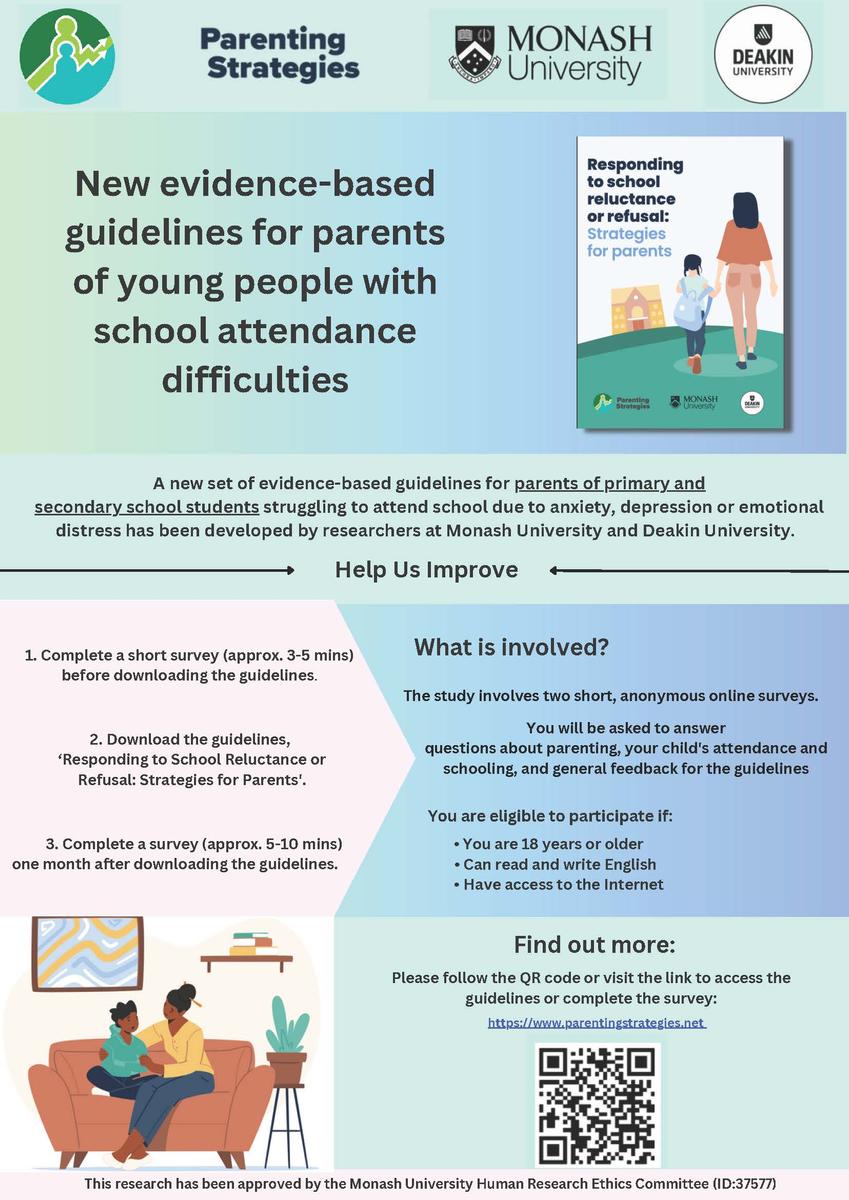Information for Parents on School Refusal
At FPS we believe that students can thrive when there is a strong partnership between home and school. We know that the topics of school anxiety and school refusal have been prevalent in the media recently. In response to this we have put together a list of strategies and resources that may be helpful in both understanding these topics more and also supporting your child to have a positive school experience.
From time to time it is normal to experience challenging school mornings. However, there is a growing number of students in Victoria for whom the thought of going to school is impossible. This has even led to a Senate Inquiry. School refusal is not a formal psychiatric diagnosis, rather a name for an emotional state.
Warning signs of school refusal include:
- Crying, yelling, screaming the morning of or night before school.
- Fits or tantrums.
- Hiding or locking themselves in their room.
- Refusing to move.
- Begging or pleading not to go.
- Complaints of aches, pains or illness, which generally get better if your child remains home.
- Showing signs of high levels of anxiety.
- Having trouble sleeping.
- Making threats.
There are many reasons why your child may experience school refusal and getting to the bottom of why from your child’s perspective can be helpful in remedying any negative feelings and experiences, and ultimately helping your child return to their regular school routine. Please reach out to your classroom teacher and the wellbeing team at FPS if you have any concerns that your child may be experiencing school refusal.
Helping Manage School Refusal
Helping your child manage their school refusal and any general anxiety they may be experiencing involves a mix of understanding, patience and the right resources. Here are some key steps we to take:
Create a Safe Environment:
- Make your home a safe space where your child/ren can talk about their feelings without fear of judgement.
- Encourage open conversations about school stress and anxieties to understand their struggles better.
- Educate yourself about anxiety disorders and coping strategies. See below for some useful links.
Set Routines and Boundaries:
- Establish consistent routines to reduce uncertainty and fear about school.
- Ensure your child is getting adequate rest, sleep and exercise. The Department of Health and Aged Care Australia, recommends that children aged 5 to 13 get 9 to 11 hours of uninterrupted sleep each night.
- Work with teachers to create personalised strategies for managing anxiety in the classroom.
- Check out Emerging Minds for tips on setting up structured routines and gradually exposing kids to anxiety-provoking situations in a supportive way.
Seek Professional Help:
- For severe anxiety and school refusal, professional help is crucial.
- Use the Australian Psychological Society's Find a Psychologist directory to connect with child and adolescent mental health specialists.
- Kids Helpline offers immediate support and counselling services for young people in distress.
- Darebin Council offers a range of services to families.
- Beyond Blue and a number of University partnerships have put together a comprehensive parenting strategies document to combat youth anxiety and depression.
Further Reading
~ Prue Middleton, Year 5/6 Wellbeing Leading Teacher


